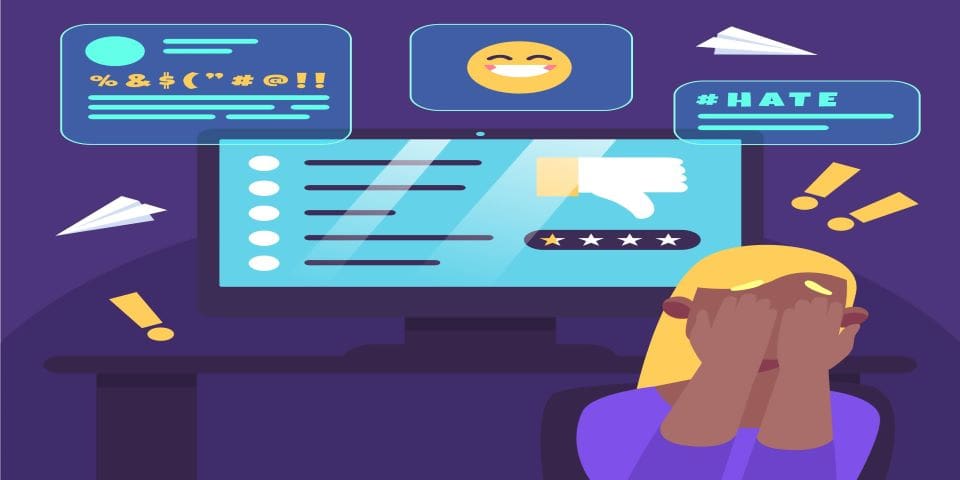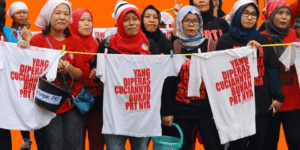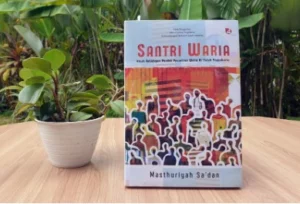In Indonesia, abortion policy continues to change. Initially, the rules in the bill stated that women who had abortions would be criminalized. That is, women who have abortions are considered to have committed crimes.
Currently, there is a new regulation contained in Health Law 36/2009 which states that abortion can be done under certain conditions, such as women can have abortions if there is a medical emergency and if they are victims of rape. This means that women victims of rape who have indications of a medical emergency can have an abortion as stipulated by the Health Law.
Discourses in the public sphere about rape and safe abortion are one of which is built, perpetuated, and can be written critically through narratives in the mass media.
Before the study, many assumptions emerged about how the media wrote about abortion. For example, although they have written much about abortion, according to a quick observation of Konde.co, the press has not written much about abortion rights for rape victims. The media reports about the issue of abortion if it is a topic of conversation or if there is an event organized related to abortion, for example, when there is a seminar or audience.
In some cases, though brief observations made by Konde, the media wrote a lot about women who had abortions and were arrested by the police, with reference sources from the news source from the information of the Police Minutes of Examination / BAP.
This news shows one-sidedness for not using the rules of reference and perspective of rape victims. Some media outlets are also still writing normatively about abortion. Such as whether or not to have an abortion is allowed. Still, disputes between pro-choice and pro-life, even though the rule of law in Indonesia have changed for this matter.
For this reason, Konde.co conducts research to prove this assumption because the media is essential in supporting advocacy by reporting. Campaigns through the media are also effective in rallying public and government support more quickly.
Research Objectives
Konde then researched How the Media Views Policy Rules on Women’s Bodies (Safe Abortion for Rape Victims). This research was conducted to find out the following:
- How the national media in Indonesia reports on abortion rights for rape victims
- What is the media policy for reporting on abortion rights for rape victims
- How are the recommendations for reporting on the issue of abortion rights for rape victims in the media
Research Methods
Konde conducted 2 studies, namely:
- First, research was conducted using the research method of framing articles to find out how the media writes about abortion rights for rape victims. Conducted on six (6) online media with the most readers according to the Alexa version from April 21 2021 – April 21 2022. The six (6) media include: Merdeka.com, Pikiran-rakyat.com, Okezone.com, Tribunnews.com, Kumparan.com, Liputan6.com.
- The second method was conducted with interviews and Focus Group Discussions (FGD) to determine the editorial policy on abortion issues. Focus Group Discussions / FGDs and in-depth interviews were conducted on 4 media studied and 4 that were not analyzed, carried out between June 16 – July 1 2022.
Research Results
The results of the study generally found that: there was no news about the issue of abortion rights for rape victims, which was simultaneously raised by 6 (six) media outlets studied by their framing media. The only news that simultaneously raised the issue of abortion for rape victims was when there was a house session that discussed the passage of the TPKS Law because one of the articles in the law raised the issue of abortion. This means that the media will be busy reporting on abortion when it is being discussed, but when it is not widely discussed, the media will not raise it.
The media also did not raise the issue of abortion rights for rape victims. Most of the media only reported statements from the government about the passage of the law; some of the media did not even present survivors or companions as sources, expert sources who could objectively comment on the rights of rape victims.
Another finding is about how editorial policies view abortion. The lack of news about abortion rights for rape victims is motivated by several reasons. First is the media crew’s lack of understanding of the issue.
Second, not many media outlets raise the issue of abortion rights for rape victims for fear of offending social and religious norms, even though this already has a justification in terms of law and religion.
Third, the issue of abortion is considered not a ‘sexy’ issue and is still considered a criminal issue that harms women, even though the issue of abortion sacrifices women.
Fourth, journalists have also never attended special training on abortion rights issues for rape victims, and the lack of understanding has created a thick stigma against abortion.
The lack of priority on the issue of abortion rights for rape victims in the media is also motivated by the current demands of media work. Almost all journalists have a minimum amount of news that must be paid for every day. They are also required to produce news that attracts a lot of readers’ interest, so they often play it safe in writing news that has gone viral and is widely discussed.
Research Recommendations
Media is one of the practical tools for campaigning for an issue. However, this can only be done if media workers understand the issues to have campaigned on.
Training on abortion rights issues for rape victims should be massively provided to media crews, from those on the ground to editors.
Until now, no guidebook has raised the issue of safe abortion rights for rape victims to journalists in Indonesia explicitly. Every media needs to have this guide so that the material can be included in the training routinely given to its journalists every year, especially to new journalists.
Civil society groups and activists on the issue of abortion rights for rape victims are also expected to embrace media friends at every event. Collaboration from various sectors is needed to make the public understand the importance of this issue.
The launch of the results of this research was carried out on August 10, 2022, by presenting speakers from the Konde.co research team: Nurul Nur Azizah, Kartika Febriana, Lestari Nurhajati, and Luviana, then Siti Mazumah/Director of LBH APIK, Rahayu Purwaningsih/Director of SpekHAM, and Sunu Dyantoro/Managing Editor of Koran Tempo.
(Translated by Marina Nasution)













